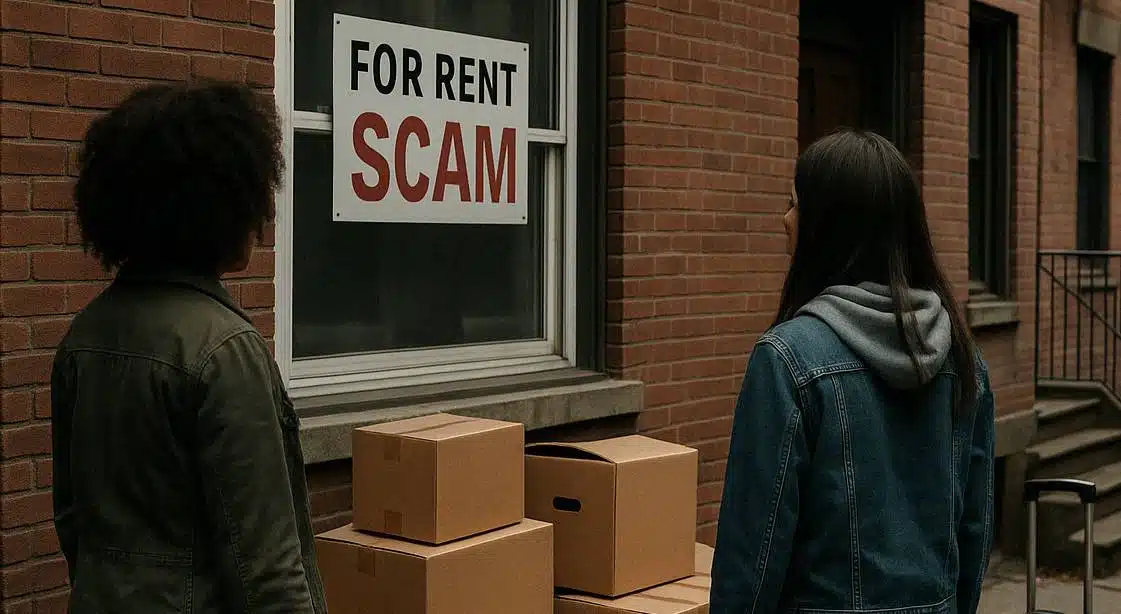As the affordable housing crisis deepens in the U.S., scammers are increasingly targeting low-income renters applying for Section 8 housing assistance. In 2025, housing authorities across the country have issued warnings about fake websites, fraudulent offers, and identity theft schemes tied to the Housing Choice Voucher Program.

Fake websites and social media ads targeting vulnerable renters
One of the most common scams involves websites or social media accounts pretending to offer fast-tracked access to Section 8 vouchers. These fraudulent platforms often ask users to pay a fee to “guarantee” an application or spot on a waitlist—something no legitimate housing authority would ever do.
In Washington, D.C., the local housing authority issued an alert warning residents about fake sites and Facebook pages claiming to manage Section 8 applications.
Similar scams have been reported in New York, Texas, and California.
“These scams are preying on people in crisis,” said a representative from the Department of Housing and Urban Development (HUD). “We’ve seen a troubling increase in these cases since the start of the year.”
How the scams work
The most common tactics include:
- Fake websites that look like real housing authority portals
- Social media posts advertising “immediate openings”
- Text messages or calls claiming to offer fast-track approvals
- Requests for application fees or personal financial information
Applicants may be tricked into providing Social Security numbers, bank account details, or other sensitive data. In some cases, scammers promise housing vouchers in exchange for gift cards or wire transfers.
Red flags to watch for
Housing authorities never charge application fees and do not advertise Section 8 openings on Facebook, Instagram, or TikTok. Be suspicious if you encounter:
- Requests for payment or personal info over text or email
- Promises of guaranteed approval
- High-pressure tactics to “act now”
- Poor grammar, misspellings, or unfamiliar web addresses
For example, official websites always end in .gov or are listed on HUD’s official housing authority directory.
What to do if you suspect a scam
If you think you’ve been targeted by a Section 8 scam, take these steps immediately:
- Do not send money or share personal information.
- Report the fraud to your local housing authority.
- File a complaint with the Federal Trade Commission at reportfraud.ftc.gov.
- Contact HUD’s Office of Inspector General via their fraud reporting form.
If you’re in New York, visit NYHousingSearch.gov for verified affordable housing listings and program information.
Staying safe when applying for Section 8
To avoid scams:
- Only apply through official local housing authorities
- Double-check web addresses
- Use HUD’s directory to find legitimate contacts
- Never pay for an application
FingerLakes1.com has previously covered how to qualify for Section 8 and recent changes to HUD’s portability rules, both of which remain relevant as demand for affordable housing grows.
Bottom line: If something sounds too good to be true when it comes to Section 8 housing—it probably is. Stay alert, report suspicious activity, and help others avoid becoming victims.
Related Reading
Want to check out more from FL1? Check out these related topics!
- Your Life, Your Money
- Stimulus Check News
- DOGE News
- Food Stamps & SNAP News
- Social Security News
- SSA Cost of Living Adjustment News
- IRS News
- Child Tax Credit News
- Latest from Congress
- Gas Prices
- Medicaid
- Medicare
Stay informed. For the latest breaking news and headlines from across the FL1 National Desk subscribe using the Google pop-up prompt or download the FingerLakes1.com App!
